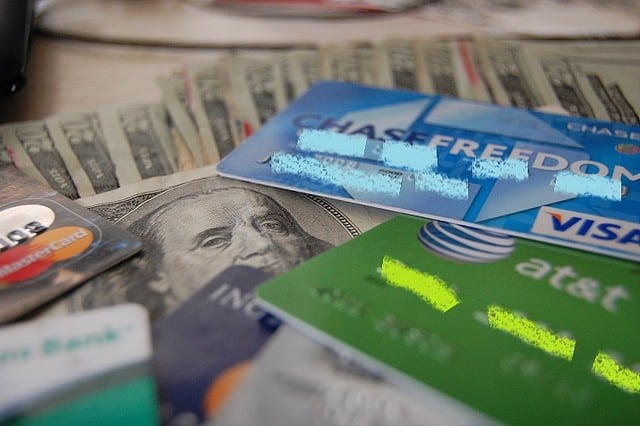Your credit score is one of the most important digits in your life. A high score is an asset for your personal finances and career; a low score, meanwhile, can land you in serious debt and even legal trouble.

Judging from the never-ending stream of credit report ads on TV, though, most people have no clue what their credit score is or why it matters. This simple string of numbers can have a major impact on your entire future, but it doesn’t need to be a mystery or a menace. With careful planning and a little learning, you can identify your credit score and make it work for you.
Why Your Credit Score is Important
You’ve seen and heard free credit report ads on TV, radio, and the internet, which you’ve no doubt learned to tune out. It’s no wonder, then, that so few people know why credit scores are such a cause for concern. Your credit score can affect all of these important parts of your life:
- Loans: Your credit score affects your chances of getting a loan, be it for a car, a new business, or a home. Loan agencies use your credit score to determine the risk they will be taking in giving you a loan; if you have a poor credit score they will give higher interest rates and require a larger down payment to balance the greater risk with a greater reward.
- Insurance Rates: Insurance companies determine rates based on credit. They may not be looking at the scores themselves but, rather, your payment history to judge the likelihood that you will make your payments regularly and on time.
- Cell phone contract: If your credit score and history is in bad enough shape, some cell phone providers will deny you a contract – though this only happens in cases of extremely poor credit.
- Utility deposits: Having poor credit will not prevent utility companies from offering you their services, but if it’s especially bad they may require a deposit to guard against failure to pay in the future.
- Professional licensing: Some professions, including law and medicine, will deny licenses to practitioners with poor credit.
- Terrorism investigation: In the years following 9/11, the government has given some agencies, such as the FBI, the authority to do credit checks on individuals with little or no warning.
- Renting an apartment: Federal law permits landlords to use credit data in deciding whom to rent an apartment to. If your credit is poor, the landlord will be reluctant to give you the apartment..
- Employment opportunities: The Fair Credit Reporting Act allows employers to check your credit report with your consent; this information may be used to determine whether or not to hire you.
How Credit Scores Work
After reading the information above, you’ve probably realized that your credit score is more important than you ever would have guessed. But what makes up a credit score, and how can you improve it?
There are three major national credit bureaus that produce consumer credit scores: Equifax, Experian, and TransUnion. These three companies determine your credit score in slightly different ways, but they are all based on the method created by the Fair Isaac Corporation or FICO. The FICO score is based on five major categories: payment history, amounts owed, length of credit history, new credit, and types of credit used.
These factors will affect each individual’s score to a different degree, depending on their credit behaviors. For example, someone who has had credit for only a few years will be affected less by the length of their credit history than someone who has had credit for many years. As a result, the given percentages for the following categories are only general guidelines:
- Payment history (35%): The most significant part of your credit history is the timeliness of payments. If you have late or missing payments, it affects your credit based on four factors: how late it was paid, how much was owed, how recently this has happened, and how often late payments are made..
- Amount owed (30%): The total balance shown on your last credit statement will be the value that affects your credit score. The factors considered are: how many accounts have an unpaid balance, the ratio of your debt compared to the total available credit, and also the total amount owed across all accounts.
- Length of credit history (15%): Your FICO account will take into account several different factors when incorporating your length of credit history: the age of your oldest and youngest accounts, the average age of all of your accounts, and how long it has been since you have used certain accounts.
- Types of credit (10%): This is based on the different payment options you’ve used during your credit history which may include credit cards, loans, cash advances, and other credit options.
- New credit (10%): This includes the number of new accounts you have and also the number of inquiries on your credit report. Each individual inquiry has a small impact of about three to five percent; if there are many checks on your report in a short period of time, though, the damages can add up quickly. This value will also take into account the time since the inquiries were made, and whether you have had credit problems in the past.
How to Improve Your Score

Picture by: Casey Serin
A low credit score can be a serious problem, making it difficult for you to keep your job, own a home, and stay financially independent. Luckily, there are several steps you can take to boost and protect your credit score. Follow these tips to help improve your score:
- Get a copy of your credit report: The first and most important step to improving your credit score is obtaining your report. Your credit report will show what is hurting your score so it can be fixed.
- Dispute errors: If you just can’t believe how high your credit spending is, the problem could lie with your creditors. Look for any errors that might be in your credit report and correct them as quickly as possible. This can be one of the easiest ways to improve your credit score.
- Get a credit card or loan if you do not have one: A poor score may be from a lack of credit history rather than poor decisions; if you have no credit cards or loans then you may want to get some. You need to establish your credit history in order to achieve a high score.
- Pay down your credit balance: Your credit score is determined by your debt to credit ratio. By decreasing the debt you have and retaining the same available credit you can improve your score substantially.
- Limit your credit card use: You need to use credit to build your score, but be sure to spend in moderation. You should attempt to keep your debt to 10% or less of each individual card’s limit.
- Focus on paying off your credit card debt over other debt: Paying extra money against the balance on your mortgage or car loan will only boost your score a few points; if you pay off a few thousand dollars on a credit card, however, it can add up to 100 points to your score.
- Keep using your old cards: You may have had a credit card for 10 years or more, but if you do not use it the company may decide to close the account or stop reporting it. If the old credit line is no longer being reported it is no longer helping to improve your credit score.
Common Mistakes That Will Damage Your Score

You now know a few good habits that can help you boost your credit score; avoiding credit mistakes, though, is just as important. A few mistakes can plummet your credit score hundreds of points, dropping you from good credit to bad in short order. Avoid these mistakes on the way to keeping your credit history clean:
- Opening too many accounts at once: When you apply for a credit card, the company will do a hard check on your credit report which will damage your credit score. Each hard check can reduce your credit score by as much as five points and will stay on your report for two full years.
- Paying bills late: When you make a late payment on anything, not just a credit card bill, it will cost you more than just late charges and fees; missing even a single payment on a debt also negatively affects your credit score.
- Using the full credit limit: Your credit card may have a high limit but that does not mean it should all be used. Maxing out your credit cards will ruin your debt to credit ratio and severely decrease your credit score. A good rule of thumb is to try and keep your debt at about ten percent of your total available credit.
- Missing one payment: It is obvious that repeatedly missing payments will ruin your credit score, but even a single missed payment can cause your score to drop. A single delinquency can cost your credit score as many as 100 points.
- Avoiding credit: While it may seem like a good idea to stay away from credit cards to avoid debt, it will actually generate a low credit score for you. Your credit score is a measure of your dependability to pay based on your prior credit history; if you have no history then there is nothing for the credit companies to consider.
- Closing old accounts: While it may seem like a good idea to close out old credit cards when trying to improve your credit, it can actually do great damage to your score. Your credit score is partially determined by how long you have had credit; closing old accounts will decrease the time that shows up on the report.
- Building up a large balance at the end of the statement period: You may pay your card off each month, but if your account balance is high at the end of the statement period, your credit reporter will just see the high balance.
- Ignoring the monthly statements: There may be no action required by the monthly statements sent out by the credit companies, but that does not mean it should be overlooked. You should look over monthly statements carefully to spot any mistakes or errors which could negatively impact your score and take all the necessary steps to fix them.
- Ignoring an account that has gone into collections: Ignoring a credit card account is an obvious way to destroy your credit, but ignoring things such as unpaid medical bills will negatively impact your credit as well. Failing to deal with a bill can cut as many as 100 points off of your score, even if you feel you are not responsible for payment. If you have a problem with the charge, you should dispute it through the proper channels in order to eliminate it from your record.
- Closing low balance accounts: If you have credit cards with a low balance, or no balance at all, closing them will actually decrease your credit score. Your score is partially determined by the credit to debt ratio, and by closing the low balance accounts you are decreasing that ratio.
- Having just credit cards, or just loans: If you only have either credit cards or loans on your report, your score can be negatively affected. This works in the same way as a short credit history – the companies want more information, and with only one type of credit the information is limited.
Sources: MSN Money; US News; Forbes; CNN; MyFico.com; USA.gov
